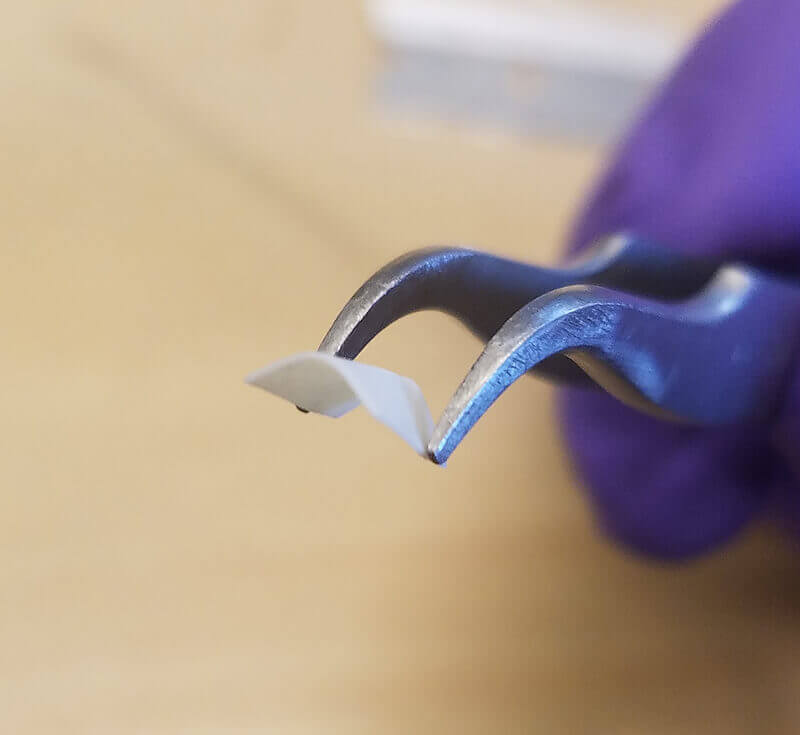October 2, 2019
New materials to help stop lithium-ion battery fires, explosions and improve battery performance

Purdue University scientists have come up with patented techniques that may cut down the fire risk from lithium-ion batteries, which are found in everyday electronic devices. (Stock photo)
WEST LAFAYETTE, Ind. – From automobiles and planes to laptops and e-bikes, lithium-ion batteries have been blamed for causing fires in high-tech devices. Now, Purdue University scientists have come up with patented techniques that may cut down the risk from these popular batteries, which are found in everyday devices such as phones and tablets.
“The major problem that hinders the wider implementation of these batteries into more automobiles and other larger devices is the flammable and explosive nature of the liquid electrolyte materials used in their fabrication,” said Ernesto E. Marinero, a professor of materials engineering and electrical and computer engineering in Purdue’s College of Engineering. “These liquids are used in what constitutes the highway, the electrolyte, for shuttling reversibly lithium ions between the battery electrodes during charge and discharge cycles.”
 This image shows a high ionically-conductive and flexible polymer composite electrolyte film for lithium-ion batteries (Image provided)
Download image
This image shows a high ionically-conductive and flexible polymer composite electrolyte film for lithium-ion batteries (Image provided)
Download image
Marinero said the Purdue research team created solutions that address the flammability problem, along with the need for high plasticity in the material inside the battery that connects the anode and cathode electrodes.
Purdue scientists created a novel composite solid-state electrolyte material system comprising ceramic nanoparticles embedded in polymer matrixes.
“These patented technologies are designed to provide a safer path within the battery and increase the ionic conductivity and performance,” Marinero said. “In addition, these composite materials potentially enable the use of pure lithium metal anodes, to increment the volumetric capacity density of existing batteries by a factor of about five.”
Marinero said the Purdue innovations have applications beyond automobiles and personal electronic devices. The battery technology also can help improve the function and lifetime of medical devices such as pacemakers.
Andres Villa, a doctoral research assistant who works in Marinero’s laboratory, studied the effects of various materials on the ionic conductivity. He found that less than 10% per weight of ceramic nanoparticles in a polymer composite electrolyte are needed to surpass the ionic conductivity of thin films comprising only the ceramic material, thereby significantly cutting down production costs.
Marinero and his team worked with scientists at the Argonne National Laboratory and the Battery Innovation Center on their technologies.
The technologies developed by Marinero and his team have been patented through the Purdue Research Foundation Office of Technology Commercialization. The researchers are looking for partners to further test and commercialize their technology. For more information on licensing this Purdue innovation, contact D.H.R. Sarma at the Office of Technology Commercialization at dhrsarma@prf.org.
The work aligns with Purdue's Giant Leaps celebration of the university’s global advancements in sustainability and health as part of Purdue’s 150th anniversary. Those are two of the four themes of the yearlong celebration’s Ideas Festival, designed to showcase Purdue as an intellectual center solving real-world issues.
About Purdue Research Foundation Office of Technology Commercialization
The Purdue Research Foundation Office of Technology Commercialization operates one of the most comprehensive technology transfer programs among leading research universities in the U.S. Services provided by this office support the economic development initiatives of Purdue University and benefit the university's academic activities through commercializing, licensing and protecting Purdue intellectual property. The office is managed by the Purdue Research Foundation, which received the 2016 Innovation and Economic Prosperity Universities Award for Innovation from the Association of Public and Land-grant Universities. The Purdue Research Foundation is a private, nonprofit foundation created to advance the mission of Purdue University. Visit the Office of Technology Commercialization for more information.
Writer: Chris Adam, 765-588-3341, cladam@prf.org
Source: Ernesto Marinero, eemarinero@purdue.edu

